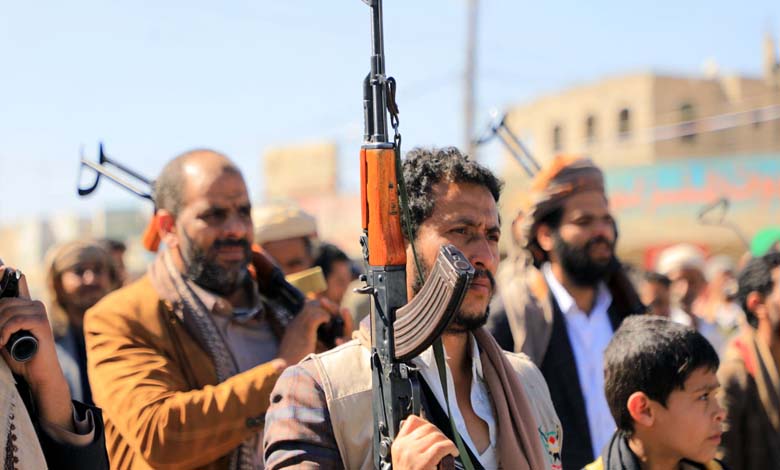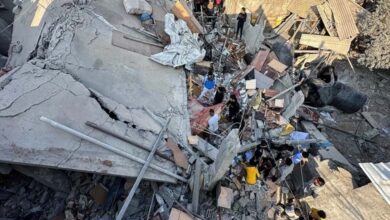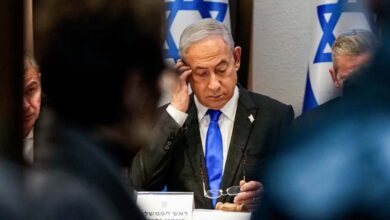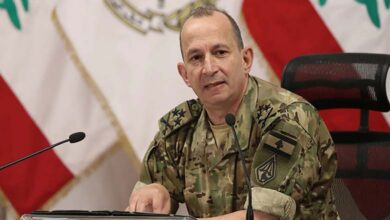The ceasefire with the Houthis was not an American concession, but the result of Houthi setbacks

Iranian authorities played a major role in encouraging the Houthis to enter dialogue, aiming to facilitate nuclear negotiations with Washington.
Four American officials revealed that the recent negotiations between the United States and the Houthi group, which resulted in a surprise ceasefire agreement, followed intelligence reports indicating that the group was seeking a way out after suffering mounting losses from seven weeks of continuous airstrikes. These strikes came in response to the Iranian-backed group’s claim that it had forced the U.S. into a ceasefire through military victories.
-
The Demons’ Deal: Houthis Release Al-Qaeda Terrorists to Reinforce Their Frontlines
-
The Muslim Brotherhood and the Houthis… Playing Openly After “Under-the-Table” Alliances
Officials emphasized that the move toward de-escalation was not due to Houthi strength as claimed, but reflected a dire situation on the ground that compelled the group to seek a face-saving settlement under heavy military pressure. The Houthis’ claims of “victory” over the U.S. military were dismissed as propaganda to mask battlefield setbacks and their shift in negotiating behavior.
Two officials said Houthi leaders began reaching out to U.S. allies in the Middle East during the first weekend of May.
One source, speaking anonymously, stated, “We started receiving intelligence indicating the Houthis couldn’t hold out much longer.”
-
Houthis Launch Ideological and Military Recruitment Campaign for Students Amid Public Outrage
-
Houthis Threaten Israel amid Stalled Second Round of Truce Negotiations
Interviews with current and former U.S. officials, diplomats, and experts show how a military campaign the U.S. Central Command initially expected to last most of the year suddenly halted on May 6 after 52 days, allowing President Donald Trump to declare victory before traveling to the Middle East.
Since November 2023, the Houthis had disrupted maritime trade by launching hundreds of drone and missile attacks on Red Sea ships, claiming to target Israel-linked vessels in solidarity with Palestinians during the Gaza war.
Two sources said Iran played a key role in pushing its allied Houthis to negotiate, as Tehran pursued its own nuclear talks with the U.S., seeking relief from U.S. sanctions and avoiding an American or Israeli military strike.
-
Houthis Torture a Young Man to Death for Refusing to Join Their Training… Details
-
The Houthis Attempt to Seize Residents’ Lands in Taiz and Turn Them into Mobilization Camps
The ceasefire announcement highlighted the Trump administration’s swift action on initial intelligence to secure what, in March, many experts had thought unlikely — the Houthis agreeing to stop targeting U.S. ships.
An Israeli official and another source noted Trump’s unconventional approach bypassed Israel, a close ally excluded from the deal and not informed in advance.
The pressure wasn’t only on the Houthis. The bombing campaign had also taken a toll on the U.S., consuming munitions and resulting in the loss of two aircraft and several drones.
One official said Defense Secretary Pete Hegseth, upon receiving the intelligence in early May, convened meetings at the White House on Monday morning, concluding there was a diplomatic opening with the Iran-backed fighters.
-
Painful blows to the Houthis: US-British airstrikes on Sanaa and Amran
-
“The Ultimate Flood”: How the Houthis Turned African Migrants into Fuel for War
Two U.S. officials said Trump’s Middle East envoy, Steve Witkoff, who was also leading nuclear talks with Iran, held indirect talks via Omani intermediaries with the Houthis’ chief negotiator and spokesperson Mohammed Abdulsalam.
Abdulsalam was in contact with Houthi leader Abdul-Malik al-Houthi, and a framework agreement was reached later that Monday.
By Tuesday, May 6, Trump was ready to announce the deal, calling the Houthi decision a surrender. He told reporters: “They said, please stop bombing us, and we won’t attack your ships.”
When asked, Abdulsalam confirmed the group communicated via Oman and agreed to the ceasefire as a defensive response. “If they stop their aggression, we’ll stop our response,” he said, declining further comment.
-
The Houthis Struggle to Avoid al-Assad’s Fate… What Are They Doing?
-
A Last Card against Isolation: The Houthis Resort to the “Sanaa Conference”
Both sides saw benefits in a deal. For the Houthis, U.S. officials and experts said it provided a way to regroup and ease pressure that could have exposed them to long-term strategic risk.
One source said U.S. regional allies also wanted an off-ramp.
“If the Houthis had come under more pressure, their response would’ve been to attack the Saudis or Emiratis,” said one source.
At the campaign’s start on March 15, Houthi leader warned that U.S. ships in the Red Sea would be targeted as long as strikes on Yemen continued.
-
“The Bells of Damascus” Alarm the Houthis: Yemeni Calls Intensify to “Uproot the Militias”
-
Houthis and Al-Qaeda: A Grim Record of Violating Yemenis’ Rights
At that time, the U.S. seemed trapped in a costly conflict with a resilient foe. After over 1,100 strikes, U.S. munitions were running low. Hegseth stated strikes would only stop if the Houthis ceased targeting American ships and drones.
Since Trump took office, the Houthis had downed seven MQ-9 drones, each worth tens of millions of dollars.
The USS Harry S. Truman, whose mission had been extended, lost two fighter jets — one falling off the deck after a sudden evasive maneuver due to a Houthi attack.
Some analysts questioned the U.S. strategy. Despite nearly a decade of Saudi-led coalition strikes, the Houthis had rebuilt and threatened both U.S. and Israeli forces.
-
The Houthis escalate hostility towards Israel as the West responds with harsh strikes: What’s the story?
-
The Houthis are preparing to leave Hodeidah… What are they doing?
A U.S. official said the turning point came on April 17, when a U.S. strike on Houthi-controlled Ras Issa port killed 74 people — per Houthi health authorities. The Pentagon did not confirm specific casualty numbers.
“That hit their operational and revenue-generating capacity,” the official said.
White House Deputy Spokesperson Anna Kelly called the Trump-announced ceasefire “another good deal for America and our security.”
Pentagon spokesperson Chris DeVine said the campaign had weakened the Houthis and “paved the way for the president to reach a ceasefire.”
-
Houthis Close Religious Centers That Disagree with Their Doctrine in Three Governorates
-
Houthis and Humanitarian Organization Employees: Information in Exchange for Freedom
Trump’s campaign came after failed efforts under Biden to deter or degrade the Houthis.
U.S. Central Command had recommended an eight-month campaign shifting toward more targeted strikes after initial broad attacks.
The bombing cost exceeded $1 billion, killing many mid-level Houthi operatives who trained junior forces, and destroying command centers, air defenses, weapons factories, and stockpiles — including anti-ship ballistic missiles, cruise missiles, drones, and drone boats.
But it didn’t sever supply lines or topple Houthi leadership. Three experts warned the group could quickly recover.
-
Following in Daesh’s Footsteps… The Houthis Spoil Yemeni Celebrations
-
The Houthis’ Catastrophe Enters Its Second Decade: A Fireball Burning Yemen
Continued attacks on Israel show the Houthis retain considerable capabilities even after the May 6 ceasefire.
U.S. officials warn the ceasefire’s duration is unclear, especially if the Houthis still view the U.S. and Israel as inseparable threats.
“Iran’s proxies don’t distinguish between Israel and the U.S.,” said one source.
“They see everything Israel does as U.S.-enabled. So they view themselves as holding America accountable.”
-
Terrorism: A Product of the Muslim Brotherhood and the Houthis… Yemenis React to Major Massacres in the South
-
The Houthis have established over 400 prisons since their invasion of Sanaa
-
The Brotherhood Strengthens Its Relationship with the Houthis… What’s New?
-
The Houthis and Somali al- Shabaab: “The Devil’s Alliance” Reaches the Horn of Africa
-
In a surprising decision, the Houthis threaten to target Saudi Arabia
-
Houthis and Muslim Brotherhood fail Muscat negotiations… Latest developments












